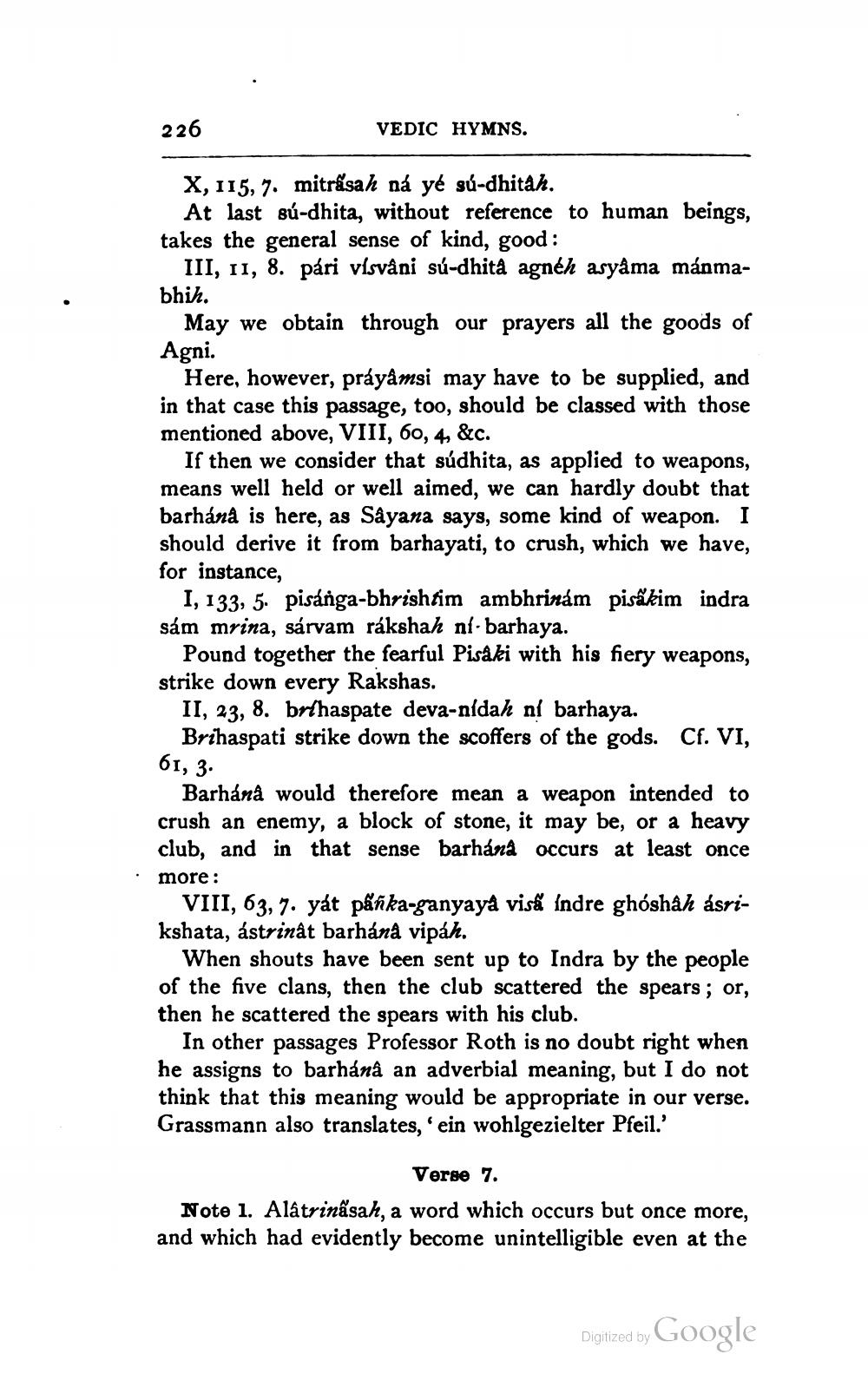________________
226
VEDIC HYMNS.
X, 115, 7. mitrásah ná yé sú-dhitah.
At last sú-dhita, without reference to human beings, takes the general sense of kind, good :
III, 11, 8. pári visvâni sú-dhità agnéh asyåma mánmabhih.
May we obtain through our prayers all the goods of Agni.
Here, however, práyamsi may have to be supplied, and in that case this passage, too, should be classed with those mentioned above, VIII, 60, 4, &c.
If then we consider that súdhita, as applied to weapons, means well held or well aimed, we can hardly doubt that barhána is here, as Sâyana says, some kind of weapon. I should derive it from barhayati, to crush, which we have, for instance,
1, 133, 5. pisárga-bhrishtim ambhrinám pisâkim indra sám mrina, sárvam rákshah ni. barhaya.
Pound together the fearful Pisåki with his fiery weapons, strike down every Rakshas.
II, 23, 8. brihaspate deva-nídah ni barhaya.
Brihaspati strike down the scoffers of the gods. Cf. VI, 61, 3.
Barhánå would therefore mean a weapon intended to crush an enemy, a block of stone, it may be, or a heavy club, and in that sense barhána occurs at least once more:
VIII, 63, 7. yát påñka-ganyaya viså Indre ghoshah asrikshata, ástrinât barhána vipáh.
When shouts have been sent up to Indra by the people of the five clans, then the club scattered the spears; or, then he scattered the spears with his club.
In other passages Professor Roth is no doubt right when he assigns to barhánâ an adverbial meaning, but I do not think that this meaning would be appropriate in our verse. Grassmann also translates,' ein wohlgezielter Pfeil.'
Verse 7. Note 1. Alatrinãsah, a word which occurs but once more, and which had evidently become unintelligible even at the
Digitized by
Digitized by Google




